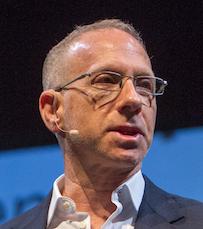
Steven Hodas was Executive Director of the New York City Department of Education’s Office of Innovation under Mayor Bloomberg, pioneering new approaches to large–district problem-solving and procurement. A former CRPE Practitioner-in-Residence, Education Week “Leaders to Learn From” Award recipient, and NASA Education pioneer, Steven has designed a wide range of education services and policies, from the first platform for large-scale district formative assessment to national K12 antibias programs to a revamped education system for the US Bureau of Prisons. He currently serves as the Senior Strategic Lead for citiesRISE, a global youth mental health non-profit, and is the founder of The Paleogene Project, which re-envisions the structural, functional, and political relationships between public schools and their communities.
For nearly a year, schools’ unpredictability has created stress and suffering for kids and families, especially in Black and brown communities where jobs and lives are also most at risk from the virus.
Before the COVID meteor knocked them for a loop, school districts were the primary providers of child care, nutrition, recreation and education — not to mention the largest employers of adults — in their communities.
School as we know it is gone and it won’t be coming back. Deprived of the ability to physically gather grade-level cohorts of students into large facilities reliably staffed by authorized district employees, it lost—with stunning speed—both operational viability and the consent of the governed.
Everything that schools do, they buy, one way or another. Whether it’s professional development, curricula and tests, or pencils, hamburger, and software, the choice is the same: either spend money on salaries and materials to make it yourself, or pay someone else to spend their money on salaries and materials and then buy it from them.
Clearly it wasn’t only the failed $1.3 billion deal to put iPads in the hands of all students and teachers that forced the resignation of Los Angeles Unified School District (LAUSD) Superintendent John Deasy.
The recent New York Times article on New York City’s high school admissions process describes how the incorporation of game theory into an algorithm for matching students with schools has substantially increased the rates at which students are matched to schools of their choosing.
Steven Hodas (@stevenhodas) is a veteran of both the New York City Department of Education and the edtech industry. In this blog series, School District Innovation: When Practice Collides with Policy, he provides insights into the challenges, struggles, and opportunities of large-district attempts to reform longstanding practices and change cultural norms.